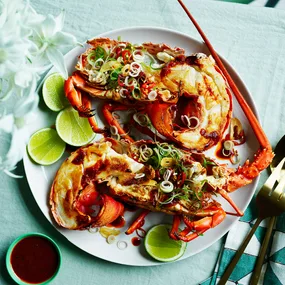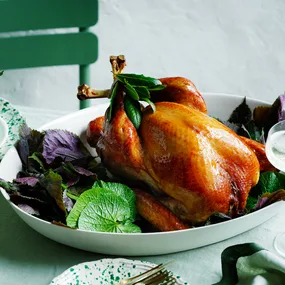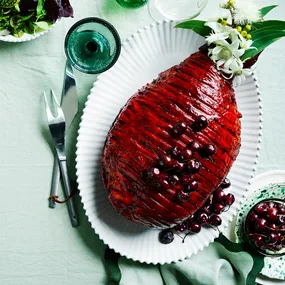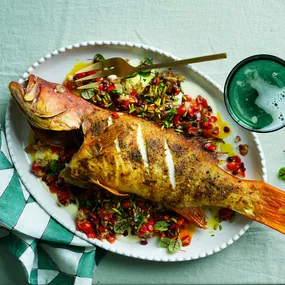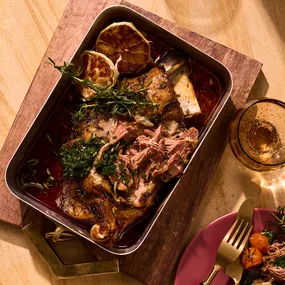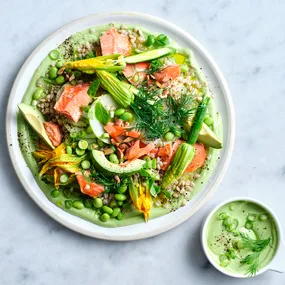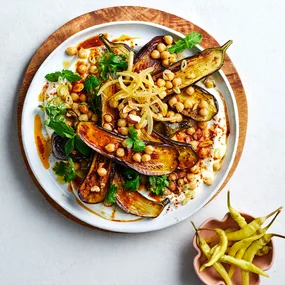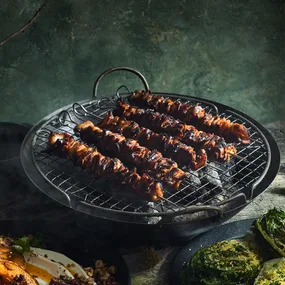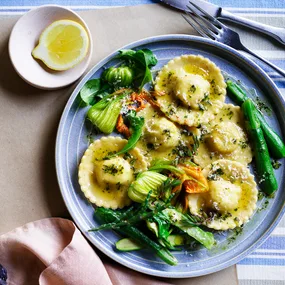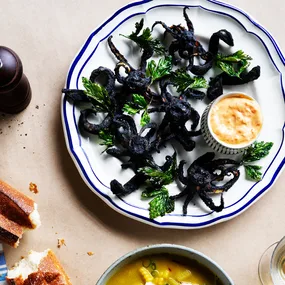Life hasn’t been kind to the humble potato. When the Spanish conquistadors carted it back to Europe from South America in the late 16th century, it was considered mere animal fodder. Later, it became the food of the poor – it was inexpensive, hardy and could be easily prepared with limited cookware. It wasn’t long before the potato crept in to mainstream cuisine, after proving itself to be extremely versatile, working well as both an accompaniment and as a perfect vehicle for flavour.
The spud is still a staple on many tables today; it’s cheap as chips, can be cooked in a multitude of ways and its unique texture allows it to take on many different flavours. And winter’s really when these ‘apples of the earth’ come into their own.
Each culture has its own special way of cooking potatoes. The English and French boil and mash them with milk, butter or cream for mashed potato or pomme purée. The Spanish mix it with bacalao, while the Italians combine mashed potato with flour and eggs for gnocchi. In central and eastern Europe, potatoes are used in dumplings.
Of course, they’re perfectly enjoyed in their own right, simply boiled and tossed with herbs and butter, or baked with cream and cheese in the classic pomme Dauphinoise. They can also be puréed for soups such as vichyssoise.
It’s the potato’s affinity with oil and salt that has perhaps guaranteed its most popular incarnation when fried as chips, crisps or pommes frites. The American chip was invented in the 1870s by chef George Crum, when a diner sent back his French fries complaining they were too thick and soggy. In frustration, Crum ended up cutting the potatoes wafer thin and frying them, resulting in the birth of an icon. Aside from the American hash brown, other cultures have been equally adept at creating fried potato goodness. The Swiss have perfected the art by grating and frying them for rösti, and the Spanish have given us the fluffy, golden tortilla.
One of the world’s most enduring crops, potatoes have had a chequered history. The Great Famine occurred in Ireland in the 1840s, when a fungus known as the potato blight destroyed the country’s primary food source. With most of the population dependant on potatoes, the resulting Great Hunger caused an estimated one million deaths.
There are two main types of potato and it is important to choose the right one for the right dish. Floury, which is better for baking, mashing and frying, makes for perfect golden chips and roast potatoes. The waxy variety is higher in moisture and low in starch, retaining its shape throughout boiling, making it great for use in salads, as an accompaniment, or added raw to soups and casseroles.
The waxy Dutch bintje is ideal for boiling but not mashing; coliban is a floury number that mashes and bakes well; while desiree is a waxy, oval-shaped potato with creamy yellow flesh, perfect for boiling and baking. Kipfler, a small elongated waxy German potato, is best steamed and used in salads. The pink fir apple is also an excellent salad potato.
The waxy Nicola is buttery in flavour and a great all-rounder in the kitchen. The red pontiac and the royal blue are also good, all-purpose potatoes.
The sebago, which you can buy either white-washed or dirty, make excellent chips. Spunta, a large, floury potato with a creamy white skin and flesh, breaks up when boiled, and is the best candidate for mashing and frying. Chats are small, waxy baby potatoes that should be boiled or steamed. The pink eye is a sweet, waxy potato identified by its deep pink eyes, ideal for boiling, baking and roasting. The Russet Burbank is highly sought after for making the best chips. The sweet potato or kumera is actually a member of the morning glory family, and not the potato family.
Select potatoes which are firm to the touch and unblemished with no signs of greening. Store loosely in a wooden or wicker container in a cool, dark, well-ventilated place, as potatoes left in the light turn green and become toxic. Store small quantities as needed, as they will easily shoot at ambient temperatures.
Potatoes may need to be washed, scrubbed or peeled depending on preference or preparation, then cooked by baking, boiling, char-grilling, frying, roasting, sautéing or steaming.
- For roast potatoes with garlic, lemon and olives, preheat oven to 200C, peel and cut desiree or sebago potatoes into equal-sized pieces, add 1 head of garlic, separated into cloves, finely grated rind and juice of 1 lemon and rosemary leaves, drizzle with olive oil and season to taste, toss to combine. Roast for 1 hour, stirring occasionally until golden and cooked through. In the last 10 minutes, add ½ cup gordal green olives.
- For warm kipfler potato, speck and onion salad, boil small kipfler potatoes in boiling salted water for 15 minutes or until cooked through, drain and refresh under cold water, slice thickly on diagonal. Heat 2 tbsp olive oil in a large frying pan over medium heat, add thickly sliced red onion and cook for 5 minutes or until soft and just starting to colour, add speck and potatoes and sauté until golden and crisp. Combine seeded mustard, sherry vinegar and extra-virgin olive oil, drizzle over vegetables and toss to combine. Season to taste and serve.
Bacon, beef, chicken, chives, coriander, celeriac, cumin, duck fat, fish, garlic, Gruyère, lamb, lemon, mushrooms, olives, onions, parsley, rosemary, sage, smoked fish, sausages, spinach.
The simple spud has gone from peasant food to pantry staple and its versatility sees it work well on its own and in myriad dishes.
Ingredients
Method
Main
ALSO IN SEASON
Fruit and nuts
Apples, cumquats, custard apples, grapefruit, lemons, limes, mandarins (Ellendale, imperial), melons, nashi, oranges, papaya, pineapples, pomelos, rhubarb, tangelos.
Vegetables
Asian greens, avocados (fuerte, hass, sharwill), beetroot, broccoli, Brussels sprouts, cabbages, cauliflowers, celeriac, celery, fennel, garlic, ginger, horseradish, Jerusalem artichokes, kale, kohlrabi, leeks, okra, olives, parsnips, pumpkins, silverbeet, spinach, swedes, sweet potatoes, witlof.
Seafood
Dusky flathead, grey mackerel, snapper, tailor, warehou, sand whiting, king prawn.
Notes

